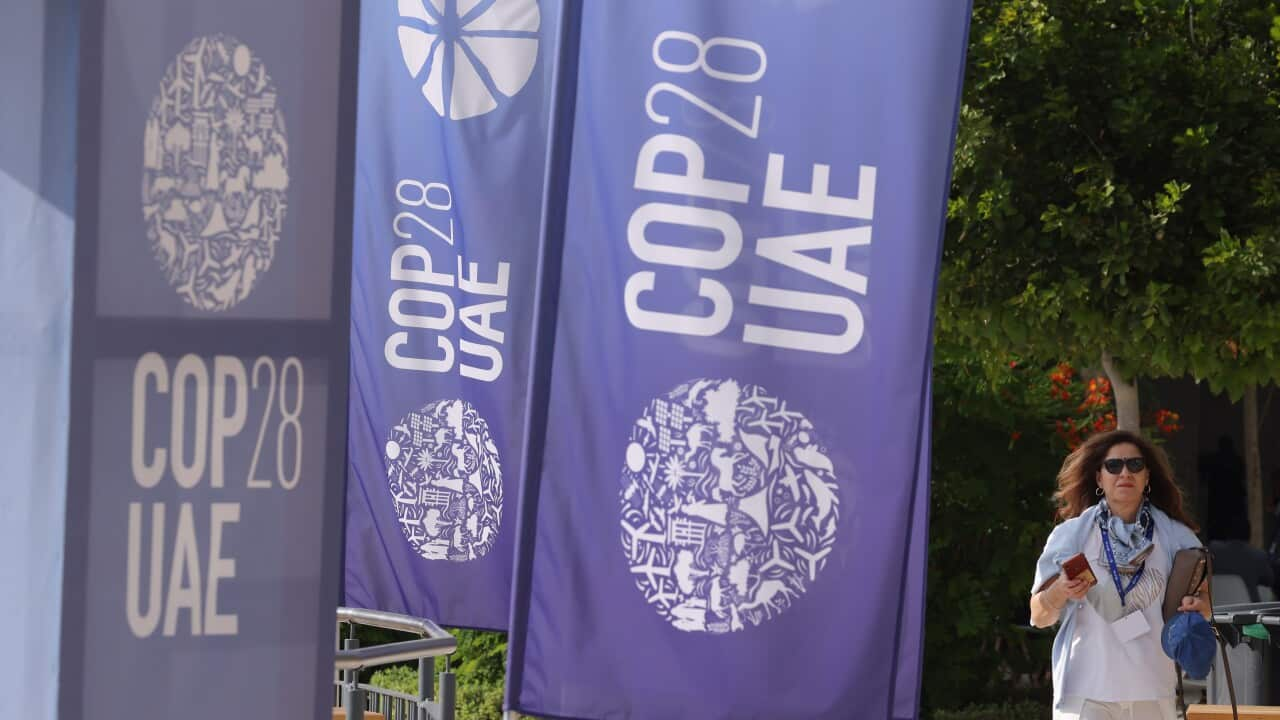Australia has signed on to a pledge at the COP28 climate summit to triple global renewable energy capacity by 2030, Climate Change Minister Chris Bowen says.
Governments of 118 countries said in the United Arab Emirates at an annual United Nations climate meeting on Sunday that they would aim to double energy efficiency and triple renewable energy capacity within six years - something pledged in September by members of the G20.
"We know that renewables are the cleanest and cheapest form of energy - and that energy efficiency can also help drive down bills and emissions," Bowen said in a statement, pointing out that other major energy exporting countries including the United States, Canada and Norway had also committed to the plan promoted by the summit host UAE.
Delegates from China and India did not back the pledge, which pairs the ramp-up in renewable power with a reduction in fossil fuel use.
"Australia has the highest penetration of rooftop solar in the world and has a plan to get to 82 per cent renewables by 2030 to deliver cleaner, cheaper and more reliable energy," Bowen said.
He said for emissions to go down around the world, a big international push was needed.
"Australia has the resources and the smarts to help supply the world with clean energy technologies to drive down those emissions while spurring new Australian industry," he added.
"More than 110 countries have joined" the pledge already, European Commission President Ursula von der Leyen told the COP28 summit on Thursday.
"I call now on all of us to include these targets in the final COP decision."
Whether governments and companies will rally the huge investments needed to hit the goal is an open question.
Clean energy deployments including solar and wind power projects have surged in recent years but rising prices for materials, labour constraints and supply chain disruptions have forced project delays and cancellations in recent months, costing developers such as Orsted and BP billions of dollars in writedowns.
Getting the deal into the final UN climate summit decision would require consensus among the almost 200 countries present.
While China and India have signalled support for tripling renewable energy by 2030, neither has confirmed it would back the overall pledge - which pairs the ramp-up in clean power with a reduction in fossil fuel use.
More than 20 nations signed a declaration on Saturday aiming to triple nuclear power capacity by 2050, with US climate envoy John Kerry saying the world cannot get to "net zero" without building new reactors.
"We are not making the argument that this is absolutely going to be the sweeping alternative to every other energy source," Kerry said during a launch ceremony at COP28.
"But ... you can't get to net-zero 2050 without some nuclear, just as you can't get there without some use of carbon capture, utilisation and storage."
Global nuclear capacity now stands at 370 gigawatts, with 31 countries running reactors.
Tripling that capacity by 2050 would require a significant scaling up in new approvals - and finance.
Saturday's declaration, signed by France, Belgium, Britain and South Korea, also commits the countries to taking action to mobilise investment for the sector.
A central decision facing nations at COP28 is whether to agree, for the first time, to gradually "phase out" global consumption of fossil fuels.











